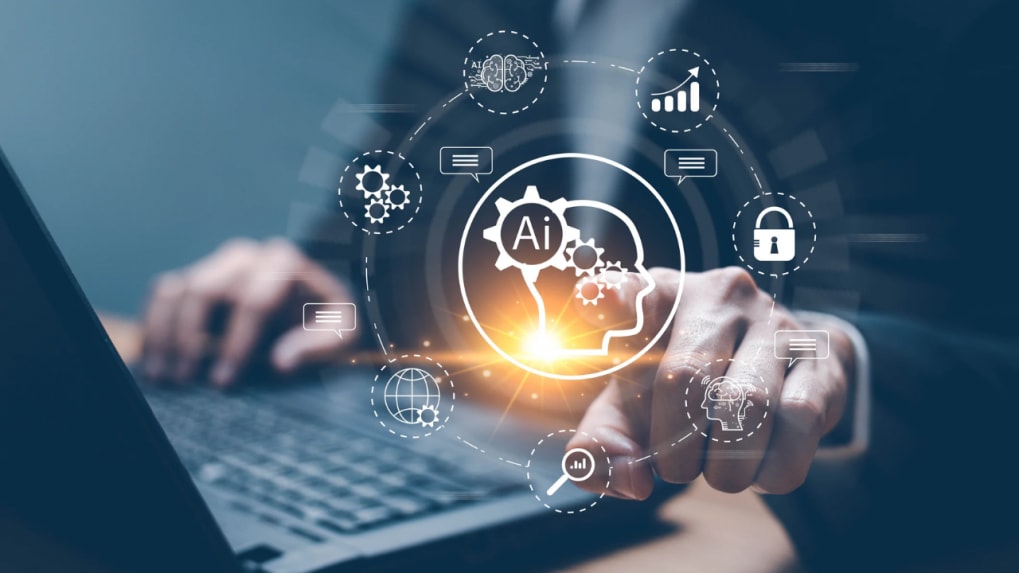How it Works
WPP, Havas, Omnicom: Are advertising’s biggest holdcos recasting agencies as AI Operating Systems?

As AI reshapes the B2B marketing landscape, leaders from LinkedIn and Sprinklr reveal how data-driven creativity, trust, and human storytelling are converging to build impactful, scalable brand strategies.
Once seen as the more formal, rational cousin of B2C, B2B marketing is undergoing a dramatic shift. Big-ticket buying decisions now demand more than just logic and product specs – they require trust, emotional connection, and brand stories that resonate.
At the same time, AI has brought unprecedented speed, precision, and efficiency to the marketing mix. The real opportunity for B2B marketers today lies in marrying these capabilities with the fundamentals of human-centric storytelling.
It is this intersection that Storyboard18 explores in its new series, ‘Decoding B2B: Marketing That Means Business’, created in partnership with LinkedIn.
In part one of this series, CNBC-TV18’s Shibani Gharat speaks with Sachin Sharma, Head, LinkedIn Marketing Solutions, India, and Arun Pattabhiraman, Chief Marketing Officer at Sprinklr, to explore how AI is not just reshaping B2B marketing - it is humanising it.
B2B or B2C? The Lines are Blurring
The traditional boundaries between B2B and B2C marketing are fading. Today's B2B buyers crave the same emotional, personalized experiences they get in consumer spaces. "It's all about building collective confidence in a group decision-making environment," notes Sharma.
And that means telling more human stories. "At the end of the day, buyers are human beings. They respond to emotion," says Pattabhiraman. His team now uses AI to instantly personalize responses to thousands of inbound leads, improving both CX and conversion rates.
AI as an Accelerator, Not an Add-On
Sharma lays it out straight, "This is a massive change, truly an inflection point – comparable to the introduction of personal computers or the internet." The data backs it. According to LinkedIn research, three out of four B2B marketers in India have already adopted generative AI tools. The result? Faster content creation, better campaign targeting, and up to 90% of B2B marketers believing AI will boost ROI significantly.
But Sharma emphasizes balance. "There has to be a trustworthy data layer, paired with human creativity, and only then layered with AI." Without that foundation, AI's potential remains untapped.
From Sprinklr's lens, Pattabhiraman asserts, "AI is no longer a novelty; it's a necessity." Today's buyers demand hyper-personalized, always-on experiences - something traditional marketing processes can't keep up with. "AI is enabling B2B marketers to unleash new levels of speed, creativity, and productivity," he adds. AI allows B2B marketers to ideate, test, and deploy campaigns at speed and scale, transforming them into agile thinkers and doers.
Summing up, he says, "AI should not be an afterthought. It needs to be natively embedded into how we run and scale campaigns."
Creativity, Trust, and the Power of Storytelling
“One of AI's greatest gifts to marketers is its ability to bridge the long-standing divide between creativity and data. LinkedIn's "Accelerate" feature now allows algorithms to define their target audience, launch campaigns, and get AI-generated ad suggestions – all in minutes. It picks up signals, optimizes content, and even recommends formats and copy,” says Sharma.
Pattabhiraman throws light on a similar note, adding how AI as a copilot complements and fills the gap from a creativity standpoint. “If you are a really analytical, data driven marketer, then AI can help you ideate campaigns at scale and very, very quickly.” Beyond scale and velocity, Arun emphasizes AI’s ability to drive quality at the same time.
Brand safety: A non-negotiable in the digital age
With buyers now expecting OTT-level personalization even in B2B purchase choices, trust has become an even greater currency for digital advertising and long-term brand differentiation.
As customers become increasingly sensitive to where brands appear, LinkedIn is tripling down on brand safety through a mix of community guidelines, ad preferences, and third-party traffic validation.
"The proximity principle applies – you are actually associated with who you show up with," explains Sharma. With controls allowing B2B marketers to choose placements and validate traffic authenticity, the platform is pushing for transparency and truthfulness in every interaction.
Patthabhiraman adds, "Trust and transparency have to be at the heart of how brands engage.” He points out how platforms like Sprinklr help manage consent and unify brand messaging across channels – a crucial function in today's fragmented digital ecosystem.
As B2B marketing leaders reimagine strategies, one thing is clear: AI’s role isn’t to replace marketers. It is to elevate them. The fusion of creative intuition, smart data, and ethical AI is defining the next frontier of B2B marketing.
Catch the first episode of Decoding B2B: Marketing That Means Business on 17th August, at 11:30 a.m on CNBC-TV18.
On the next episode of Decoding B2B: Marketing That Means Business, we will explore how with tighter budgets and rising CFO scrutiny, CMOs must prove real ROI.
From purpose-driven work and narrative-rich brand films to AI-enabled ideas and creator-led collaborations, the awards reflect the full spectrum of modern creativity.
Read MorePraveen Someshwar, Managing Director and CEO of Diageo India, joins the Grand Jury of the Storyboard18 Awards for Creativity, highlighting the awards’ focus on work that blends cultural relevance with strategic and commercial impact.